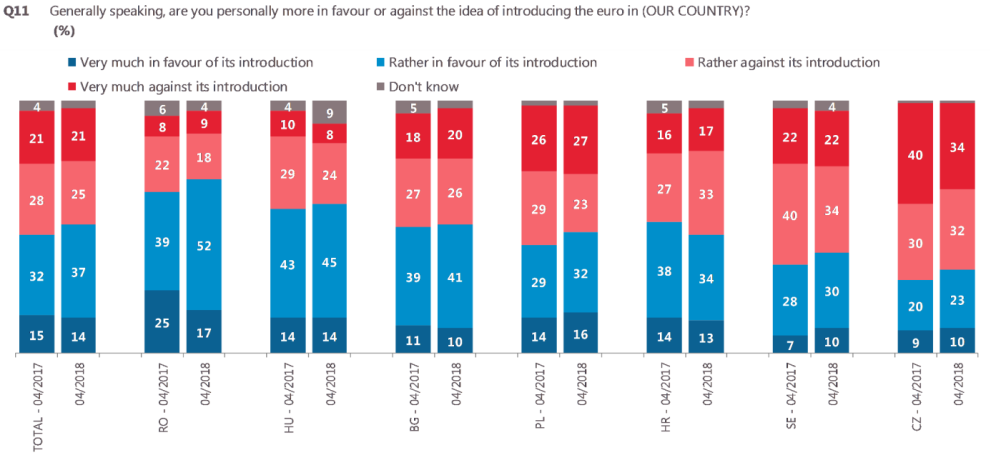
In total, 51% of respondents across the seven Member States (Poland, Sweden, Hungary, Romania, the Czech Republic, Croatia and Bulgaria) now support the idea of adopting the euro in their country, up four percentage points over the last year and a total of six percentage points since 2016.
A majority of respondents in Romania (69%), Hungary (59%) and Bulgaria (51%) are in favour of introducing the euro, while 48% of respondents are in favour in Poland, 47% in Croatia, 40% in Sweden and 33% in the Czech Republic.
Support for introducing the euro has risen over the last year in all the countries, except Croatia, where it fell by five percentage points.
Analysis of the data shows that men tend to be more in favour or adopting the euro than women. A majority of men (57%) are in favour of their country adopting the euro compared to 45% of women.
When asked whether their country was ready to introduce the euro, however, large majorities of respondents in all seven countries and 74% of respondents in total said ‘no’ (-3 pps. from 2017).
Many respondents in Sweden (48%), Poland (37%) and the Czech Republic believe that their countries are unlikely to ever adopt the euro, although their numbers are declining (- 3pps in in Sweden and Poland and – 9pps in the Czech Republic).
A 10-year time frame for euro adoption was seen as most likely by 47% of respondents in Hungary, 39% in both the Czech Republic and Sweden, while in Bulgaria, 50% said they expected to introduce the euro within five years.
The overall percentage of people who think that the euro has been positive for those countries already using it rose one percentage point from last year to 55%.
While slightly more respondents felt that they would personally benefit rather than lose out from their country’s adoption of the euro, (47% vs. 44%); slightly more thought that the euro would have negative rather than positive consequences for their countries (48% vs 46%).
The Eurobarometer survey was conducted in April 2018 and involved over 7000 telephone interviews.
Details
- Publication date
- 23 May 2018
- Location
- Brussels
